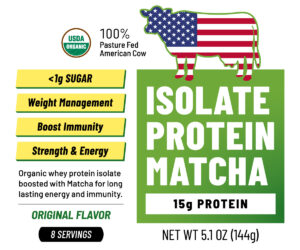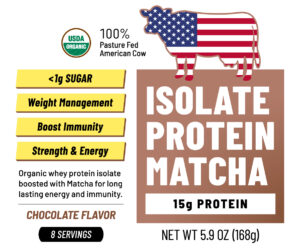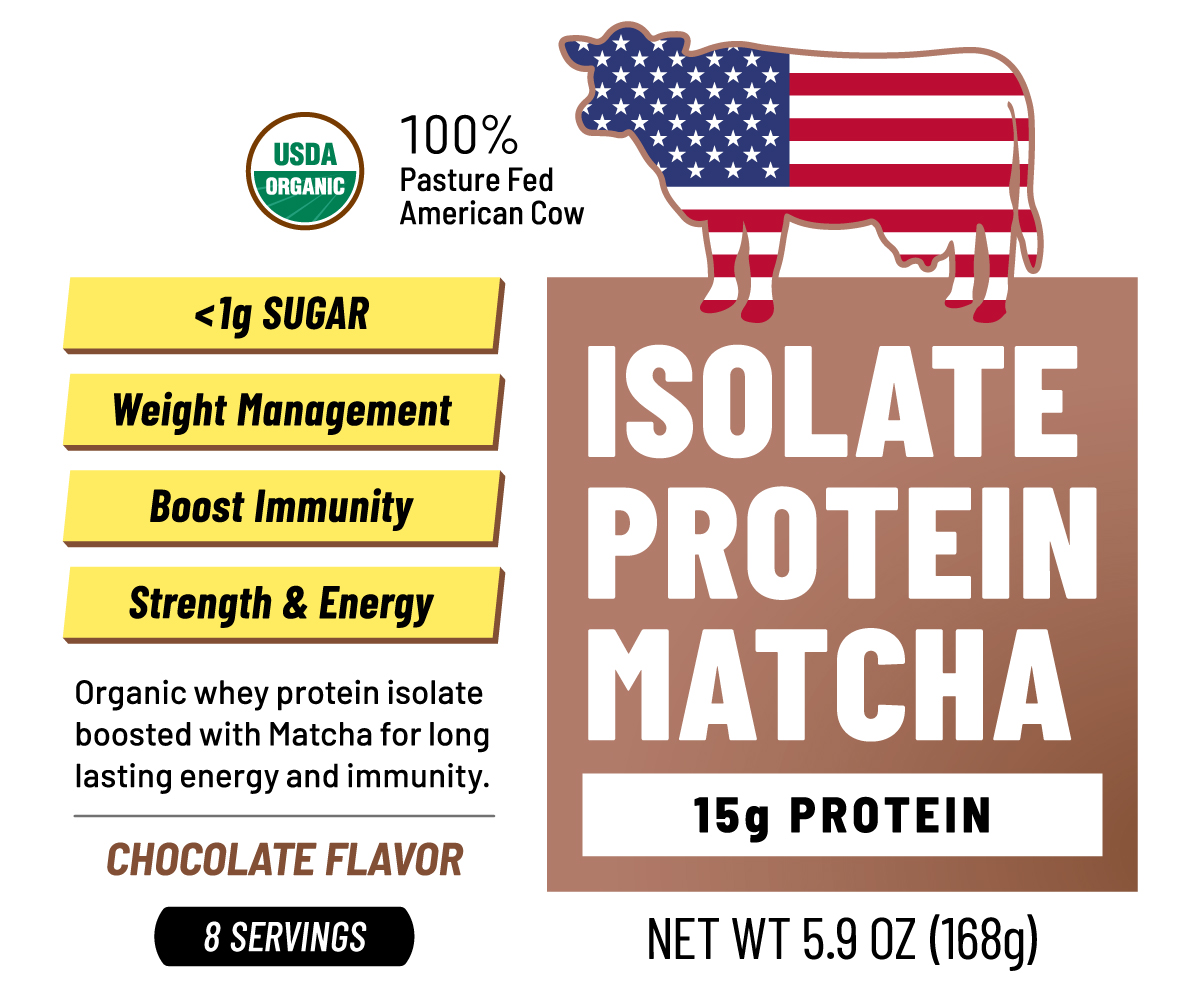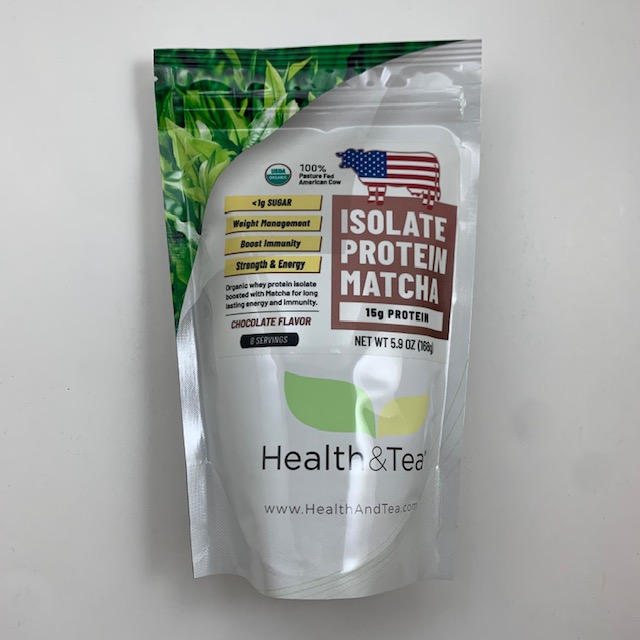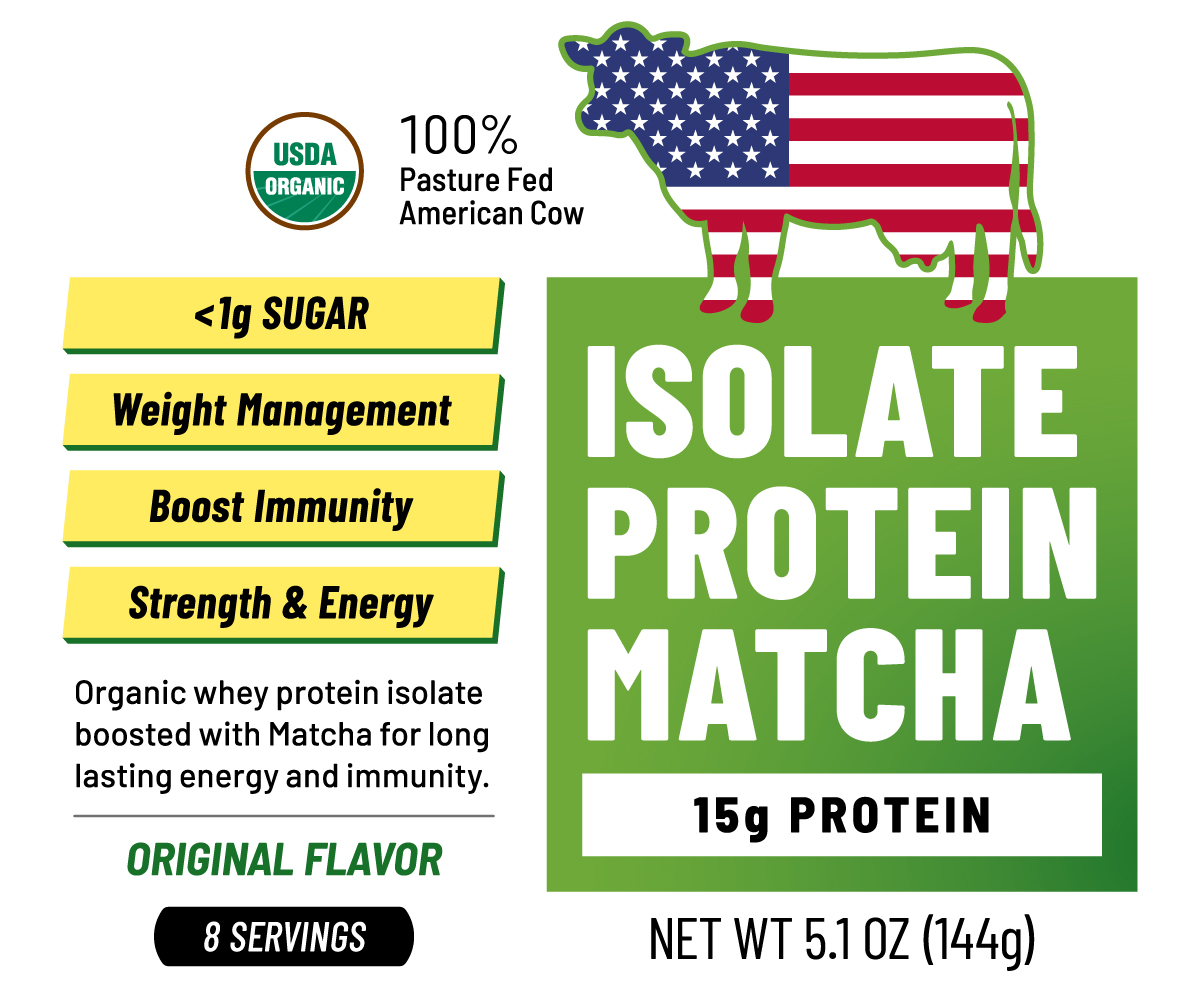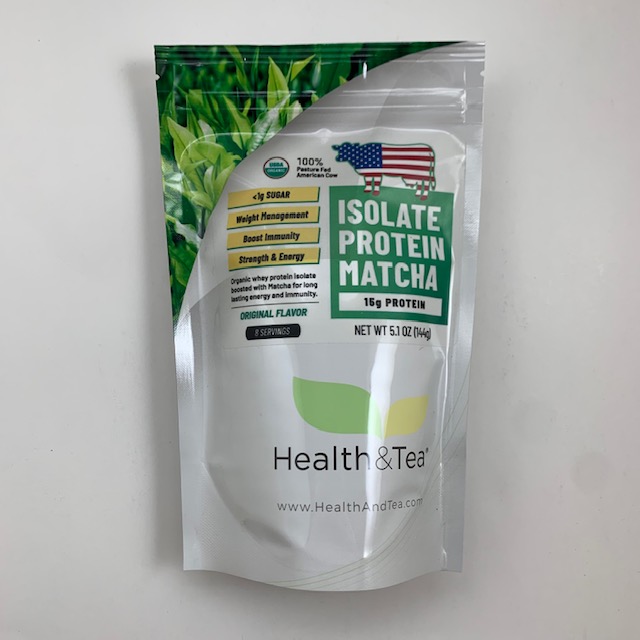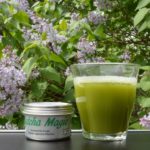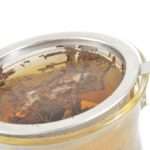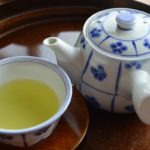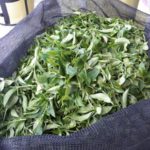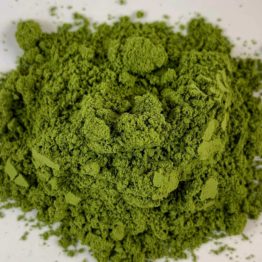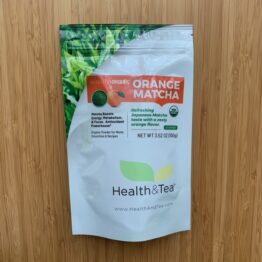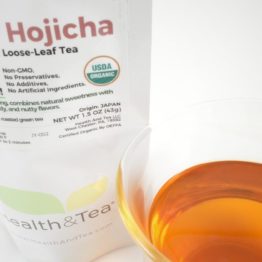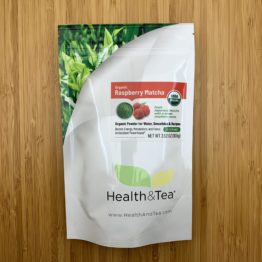Protein Matcha
Protein Matcha
New Super Powder for Muscle Growth, Weight Management, Long-Lasting Energy, and Immunity
Key Features of Health&Tea Isolate Protein Matcha
Muscle growth: 15g top-quality protein per serving.
Weight management: Contains “Whey Isolate Protein” which means less calories, carbs, and fat.
Immunity & Energy: Contains Matcha, a special green tea powder packed with antioxidants, including catechins, EGCG, L-theanine, and caffeine.
Natural & Organic: All ingredients are non-GMO and USDA Organic certified.
Sourced from the Best: Whey protein isolate from 100% pasture fed cows in USA; Matcha from Japan.
Two Flavors: Original & Chocolate
Original flavor is whey protein isolate unflavored with matcha.
Chocolate protein powder is slightly sweetened with natural monk fruit sweetener and has natural chocolate flavoring.
FAQ:
Q1: What is protein powder?
Protein powders are powdered forms of protein that come from plants (soybeans, peas, rice, potatoes, or hemp), eggs, or milk (casein or whey protein).
Whey protein powder is derived from cow’s milk. Whey protein is absorbed and digested most rapidly.
Health&Tea uses Whey Protein Isolate in our Isolate Protein Matcha products, containing milk.
Q2: Why do you need protein?
Protein is essential for building and maintaining muscle, bone strength, and numerous body functions.
According to the article “The scoop on protein powder” on Harvard Health Blog, eating enough protein is necessary for a healthy immune system and required for organs like your heart, brain, and skin to function properly. The article notes the amount thought to be adequate for most healthy people, called the Recommended Dietary Allowance (RDA), is set at 0.8 grams per kilogram. (link: https://www.health.harvard.edu/blog/the-scoop-on-protein-powder-2020030918986)
Q3: What is whey isolate protein or whey protein isolate (WPI)?
Whey protein powder is derived from cow’s milk. There are three types of whey protein products: whey protein concentrate (WPC), whey protein isolate (WPI), and whey protein hydrolysate (WPH).
Whey protein isolate (WPI) is processed to reduce whey’s fat and lactose content, leaving mainly protein. Whey isolate protein has the best quality of protein.
Health&Tea uses WPI in our Isolate Protein Matcha products.
Q4: What are benefits of whey protein isolate (WPI)?
WPI contains a high level of protein (above 90% of protein content) and has very low fat, cholesterol, and lactose. Several studies on PubMed.gov suggest that Whey isolate protein is good for muscle growth when taken over time with regular resistance training (reference 1, 2, 3). According to an article “Difference between Whey and Whey Isolate” on Webmd, whey protein isolate may be better for people who have trouble digesting lactose or are lactose intolerant.
Link: https://www.webmd.com/diet/difference-whey-and-whey-isolate)
Q5: What is matcha?
Matcha is finely ground powder of specially grown and processed green tea leaves. According to an article “All About Matcha” on Webmd, Matcha is very rich in antioxidants with lots of health benefits. (Source: https://www.webmd.com/food-recipes/ss/slideshow-all-about-matcha
Q6: Are there any health tips when using Health&Tea Isolate Protein Matcha Powder?
- You still need to do exercise or workout to build muscles when using Health&Tea Isolate Protein Matcha products.
- The best time to drink Health&Tea Isolate Protein Matcha products is within 30 minutes after workout.
- Whey protein isolate (WPI) may be a suitable choice for people who are lactose intolerant.
Expert Video:
How To Pick The Best Protein Powder (CHOOSE WISELY!) by Jeremy Ethier
References:
1. Pennings B, Groen B, de Lange A, Gijsen AP, Zorenc AH, Senden JM, van Loon LJ. Amino acid absorption and subsequent muscle protein accretion following graded intakes of whey protein in elderly men. Am J Physiol Endocrinol Metab. 2012 Apr 15;302(8):E992-9. doi: 10.1152/ajpendo.00517.2011. Epub 2012 Feb 14. PMID: 22338070.
2. Tipton KD, Elliott TA, Cree MG, Wolf SE, Sanford AP, Wolfe RR. Ingestion of casein and whey proteins result in muscle anabolism after resistance exercise. Med Sci Sports Exerc. 2004 Dec;36(12):2073-81. doi: 10.1249/01.mss.0000147582.99810.c5. PMID: 15570142.
3. Reitelseder S, Agergaard J, Doessing S, Helmark IC, Lund P, Kristensen NB, Frystyk J, Flyvbjerg A, Schjerling P, van Hall G, Kjaer M, Holm L. Whey and casein labeled with L-[1-13C]leucine and muscle protein synthesis: effect of resistance exercise and protein ingestion. Am J Physiol Endocrinol Metab. 2011 Jan;300(1):E231-42. doi: 10.1152/ajpendo.00513.2010. Epub 2010 Nov 2. PMID: 21045172.
